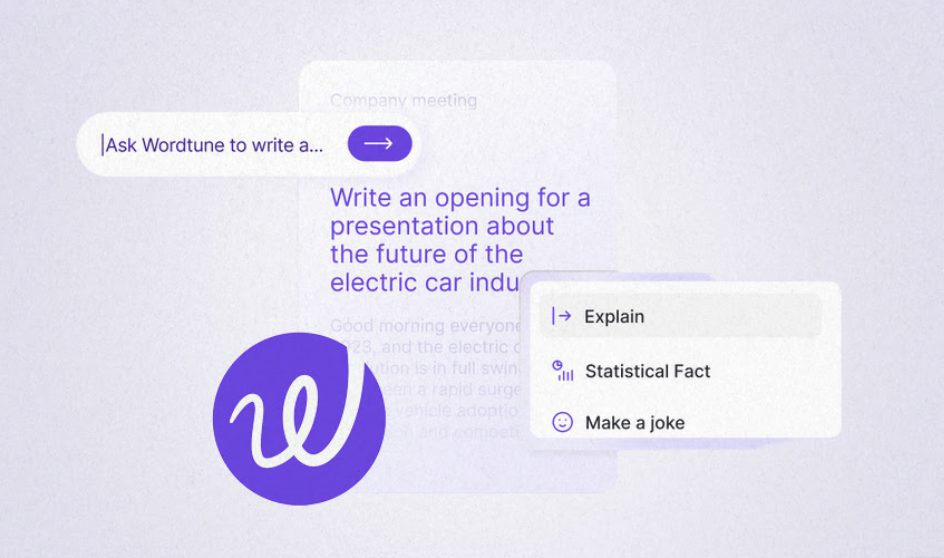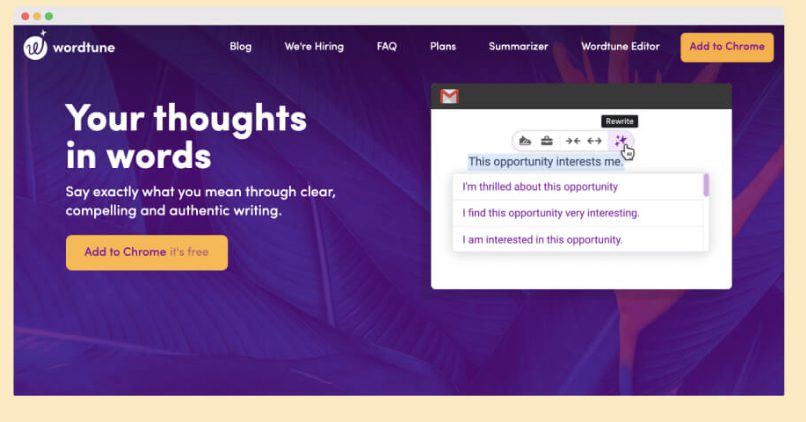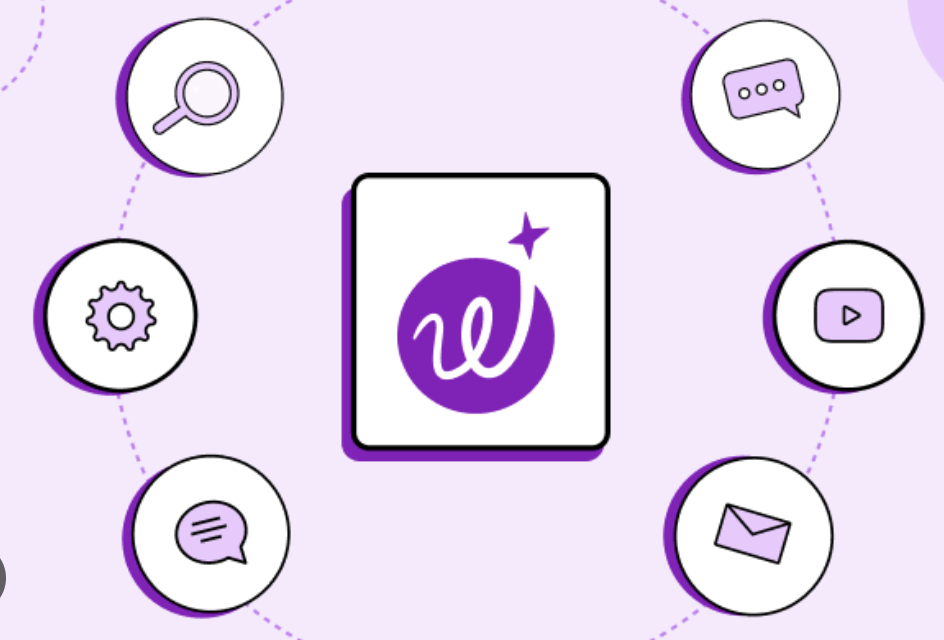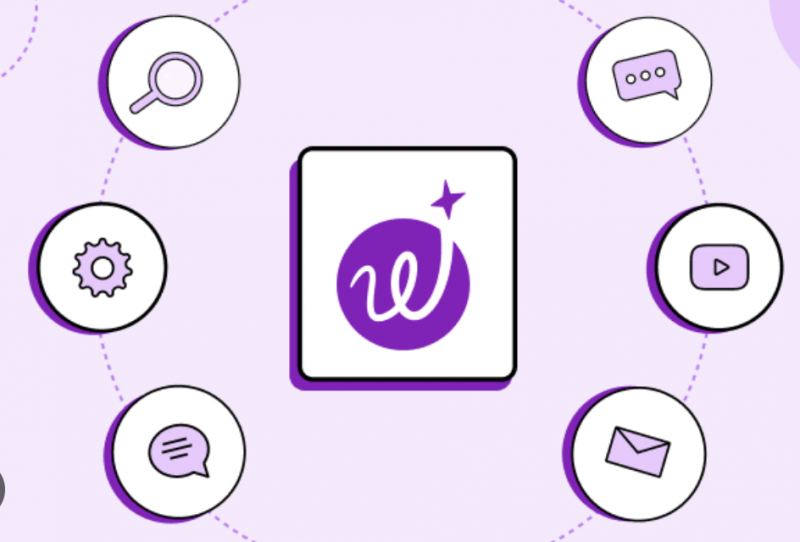Your guide: Does Wordtune use OpenAI?
Two well-known players have surfaced in the always-changing terrain of artificial intelligence (AI) technologies for content production and writing: ChatGPT and Wordtune. Although both use sophisticated language models to help users, their applications and user experiences can be much affected by their basic distinctions. Understanding the nuances between ChatGPT and Wordtune can help you choose which of AI-powered writing aides best fits your particular requirements as they acquire popularity.
One of the main concerns about these products is whether Wordtune makes use of the same fundamental technology as ChatGPT, created by OpenAI. So, if you’ve ever wondered, “Does Wordtune use OpenAI?” you’re in luck.
Keep reading to find out more.
Also read: BRICS: 3 Major Announcements to Expect at the 2024 Summit


What is Wordtune?
Made to improve the quality and clarity of written material, Wordtune is an AI-powered writing helper. Designed by top AI research and development firm AI21 Labs, Wordtune uses cutting-edge natural language processing (NLP) techniques to examine and offer recommendations for structural, grammatical, and general style improvement of your writing.
Wordtune is designed especially to help authors improve and polish their current work, unlike ChatGPT, which is mostly concerned with producing original material. Designed to assist users to express their ideas more precisely, the application provides rephrasing recommendations, tone changes, and contextual upgrades among other tools.
Does Wordtune apply OpenAI’s technology?
The underlying technology behind each tool distinguishes Wordtune from ChatGPT most importantly. Though both are based on big language models, Wordtune does not make use of the same OpenAI technology driving ChatGPT.
AI21 Labs, an independent AI research and development business apart from OpenAI, develops and maintains Wordtune. Not directly related to OpenAI’s technological stack, the language model and methods Wordtune employs are exclusive to AI21 Labs.
Wordtune’s ability to be free from OpenAI’s infrastructure enables it to provide a special set of tools catered to its particular use case of writing support. AI21 Labs has optimized its language model to excel at rephrasing, tone correction, and contextual enhancement for content creators.


Important Contrasts Between ChatGPT and Wordtune
Though both are AI writing tools, ChatGPT and Wordtune differ in purpose, user experience, and technology. Knowing these differences will enable you to choose the instrument that best fits your particular writing requirements.
Also read: 54 Nations to Attend BRICS Summit 2024 and Ditch the US Dollar
Formats of Input and Output
The two tools differ fundamentally from one another mostly in their input and output formats. ChatGPT mostly runs on a text-based conversational interface, in which users ask questions or prompts and the AI responds text-wise.
Wordtune, on the other hand, is meant to run effortlessly inside your current writing process. The program lets you highlight or choose text and get real-time enhancement ideas by connecting with several platforms like web browsers and document editors. Wordtune’s output is a set of contextual ideas and alternatives you might choose to include in your work, not a stand-alone text response.
Method of Writing Assistance
ChatGPT is a great tool for jobs including brainstorming, ideation, and question responding since it is mostly concerned with creating original content. Although it can help with some writing, its skills in this regard are more constrained than those of Wordtune.
Conversely, Wordtune is meant especially to improve and polish already written material. The instrument examines your work and provides a variety of recommendations for bettering sentence structure, vocabulary, tone, and general clarity. For authors, content creators, and professionals who must polish and hone their written work, Wordtune is therefore a more appropriate alternative.
Customization and Commenting
The two tools differ most importantly also in their feedback and customizing features. Operating on a more generic model, ChatGPT responds depending on its extensive training data and has little capacity to accommodate personal user tastes or writing styles.
Wordtune is meant to be quite flexible, though. Over time, the program learns from your preferences and writing habits to offer ever more customized recommendations and comments. By stating their preferred tone, style, and writing objectives, users can also help Wordtune to customize its suggestions.
Wordtune also provides real-time comments and analysis on your material, pointing up places needing work and offering substitute phrasing choices. Writers who want to always improve their craft and ability may find this interactive approach especially helpful.


Integration and Accessibility
ChatGPT requires technical knowledge to be included in other apps or processes; it is mostly available through its web-based interface or via API connections.
Conversely, Wordtune presents a more approachable and easily available method. Available as a browser plugin, Wordtune integrates easily with Google Docs, Microsoft Word, and email applications. This integration simplifies the writing process and makes Wordtune accessible to a wider range of users.
Conclusion
To get the most out of your working time, you need to know how Wordtune and ChatGPT are different. Wordtune from AI21 Labs is great at improving current content with personalized suggestions, while ChatGPT is great at writing new text and answering a wide range of questions.
You can be more productive, write better, and communicate better if you know what each tool does best. Knowing about new developments in AI writing tools will help you stay ahead of the game and reach new levels of writing greatness.





